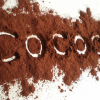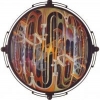In order to help differentiate consummatory and anticipatory anhedonia, let's attempt to localize discussion of anticipatory anhedonia here and allow "The Anhedonia Thread" to focus on consummatory anhedonia.
For reference, here's the TEPS (Temporal Experience of Pleasure Scale):
Anticipatory factor
1. When something exciting is coming up in my life, I really look forward to it
3. When I think about eating my favorite food, I can almost taste how good it is
7. I don’t look forward to things like eating out at restaurants
11. When I’m on my way to an amusement park, I can hardly wait to ride the roller coasters
12. I get so excited the night before a major holiday I can hardly sleep
14. When I think of something tasty, like a chocolate chip cookie, I have to have one
15. Looking forward to a pleasurable experience is in itself pleasurable
16. I look forward to a lot of things in my life
17. When ordering something off the menu, I imagine how good it will taste
18. When I hear about a new movie starring my favorite actor, I can’t wait to see it
Consummatory factor
2. The sound of crackling wood in the fireplace is very relaxing
4. I love the sound of rain on the windows when I’m lying in my warm bed
5. The smell of freshly cut grass is enjoyable to me
6. I enjoy taking a deep breath of fresh air when I walk outside
8. A hot cup of coffee or tea on a cold morning is very satisfying to me
9. I love it when people play with my hair
10. I really enjoy the feeling of a good yawn
13. I appreciate the beauty of a fresh snowfall
If you have mostly negative responses to the first set of items, then you may have issues with anticipatory anhedonia.
So let's have some discussion of what methods you've tried and found effective or ineffective.
Some possible routes:
Stimulants - positive experiences have been reported for ampetamine, less so for methylphenidate; Have either of these worked for you? What about tolerance control strategies like NMDA antagonists or potentiation strategies like CILTP?
Low-dose psychedelics - some people have reported remission of symptoms with low-dose psychedelics
Bupropion - often prescribed for anticipatory anhedonia side effects of antidepressants. It's an NDRI, but its affinity for the dopamine transporter is around 25%, and it may need to be more like 50% to be effective if we use SSRIs' binding affinities as a guideline. But high affinities for the DAT (maybe 65% +) as well as rapid onset are risk factors for addictivity.
Traditional antidepressants - SSRIs seem to be a terrible choice since they often create anticipatory anhedonia. SNRIs do not affect dopamine, so they do not seem to be a particularly good option either.
MAOIs and tricyclics - these may let us access dopamine, but they have pretty substantial side-effect profiles. Selegiline looks promising as an MAO-B inhibitor with a small stimulant payload.
Uridine and/or CDP choline - uridine may have effects on the dopamine system. CDP choline is reported to increase DA and ACh receptor density, although it is not apparent whether this is just a side effect of it being a prodrug for uridine. Anecdotally, I've been taking uridine monophosphate at 300 mg/day for the past week with minimal and seemingly anxiolytic but not pro-motivation effects.
TMG/SAMe - SAMe may increase monoamine levels, but it does not seem to be selective for dopamine or catecholamines in general. Anecdotally, TMG is somewhat effective for me, but it is not perfect and does not entirely eliminate the issue.
Adaptogens - what about rhodiola rosea and the like?
And one more bizarre idea. What about St. John's Wort? One of its components - which is not necessarily present in all extracts - is hyperforin, which is a SNDRI, with greatest affinity for NET but also quite high affinity for DAT. It has affinity for SERT, but it's quite a bit lower than for NET or DAT.
Edited by Dissolvedissolve, 08 December 2012 - 09:02 PM.






















































